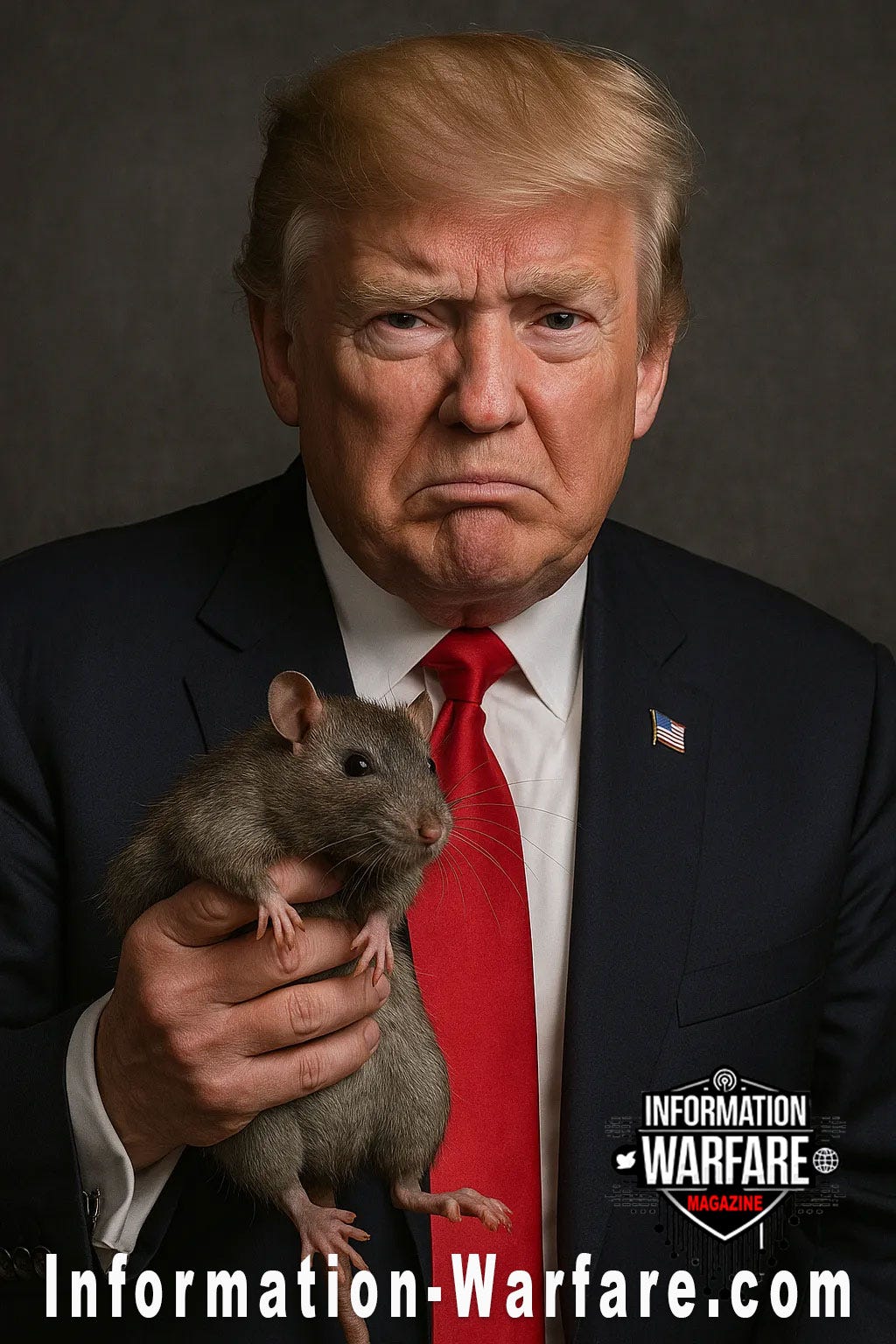The President and the "Rat"
Donald Trump’s Rhetoric of Disloyalty and Its Assault on American Legal and Political Norms
I. Central Thesis
Donald Trump’s repeated use of the term “rat” to describe individuals who cooperate with law enforcement is not random or impulsive. It is a strategic rhetorical weapon drawn from organized crime culture, specifically designed to reframe loyalty not to the Constitution or legal system, but to Trump personally.
This redefinition challenges American legal and political norms, especially the long-standing expectation that cooperation with law enforcement is a civic duty, not a betrayal.
II. Linguistic and Cultural Analysis
The term “rat” historically signifies betrayal and disloyalty, especially within criminal and subcultural contexts like the Mafia, where “rats” are informants who violate the code of silence (omertà).
Trump weaponizes this term to stigmatize legal cooperation and elevate personal loyalty above legal or ethical norms.
By using mafia-style language, he transposes a criminal worldview into presidential rhetoric, framing law enforcement as an enemy gang and witnesses as traitors.
III. Historical Presidential Comparison
Past presidents, even those under investigation (e.g., Nixon, Clinton), upheld the public norm that cooperation with justice is patriotic and necessary.
Trump breaks this precedent, publicly ridiculing cooperators and delegitimizing legal institutions in ways unmatched in modern American history.
While Nixon secretly obstructed justice, Trump openly undermines the legitimacy of cooperation itself, marking a revolutionary rhetorical rupture, not just a stylistic shift.
IV. Authoritarian Populism in Action
Trump’s rhetoric reflects the core tactics of authoritarian populism:
Constructs a "para-state" (the MAGA movement) that exists in opposition to the U.S. government.
Frames himself as the sole embodiment of truth and justice, with loyalty to him framed as loyalty to “the real America.”
Encourages a siege mentality among supporters, casting legal investigations as attacks on them, not just on him.
His statement “I am your retribution” reinforces this bond, transforming cooperation with legal institutions into treason against the movement.
V. Legal and Constitutional Consequences
The rhetoric undermines the justice system by intimidating potential witnesses, making it harder to prosecute complex crimes.
It distorts prosecutorial decisions, as witnesses labeled "rats" are preemptively discredited in the court of public opinion.
Trump's statements potentially violate federal witness tampering and obstruction statutes (18 U.S.C. §§ 1510, 1512).
His actions betray the constitutional mandate that the President “shall take Care that the Laws be faithfully executed.”
VI. Media Ecosystem & Public Trust
Trump’s rhetoric is amplified and normalized by conservative media, while liberal media frames it as authoritarian and dangerous.
This polarized environment creates dueling realities, insulating Trump from accountability and eroding public trust in the justice system.
Polls show deep partisan divides in perceptions of fairness, with many Republicans believing Trump is persecuted, while many Democrats think he’s coddled.
VII. Conclusion: A Threat to Democratic Foundations
Trump’s use of “rat” represents a systemic attack on the rule of law, not just an attack on individual witnesses.
It replaces legal authority with personal loyalty, delegitimizes civic duty, and normalizes authoritarian logic.
The rhetorical strategy is a dangerous precedent, a playbook for future authoritarian-minded leaders to undermine democracy from within.
Most importantly, it erodes the shared trust in legal norms necessary for democratic self-governance, threatening the stability and integrity of the republic itself.
In essence:
Trump’s “rat” rhetoric is not just an insult, it is an ideological weapon designed to reshape American democracy around loyalty to a leader, not loyalty to the law.


